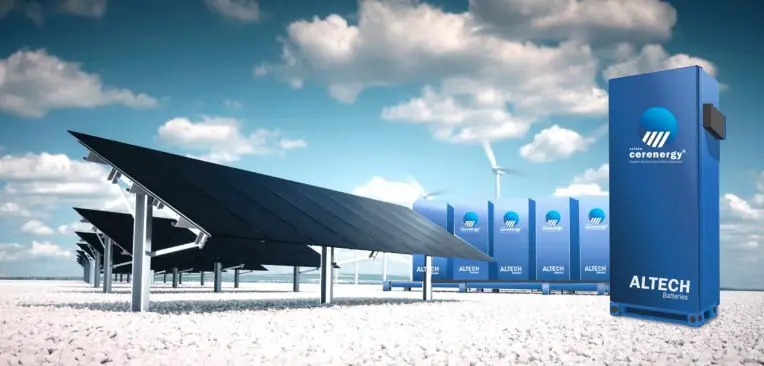Plans are underway for the construction of ABS60, a 100MWh sodium solid-state ESS battery plant in Germany. According to Altech Chemicals, an ASX-listed company, and Fraunhofer-Gesellschaft, a research organization, the plans are at an advanced stage.
Reportedly, its design foundation has been finalized by the joint team led by Altech’s MD Iggy Tan. Integration planning has also begun. This is after finalizing key equipment suppliers and completing a preliminary plant and site layout. The site’s approval procedure, infrastructure needs, and balance of the plant will be managed by the civil engineering company Arikon Infrastruktur.
Altech is looking into state and federal grant programs in Germany and the EU. This is in order to support the project’s financing. The company is also looking into banks for commercial financing.
Upon completion, the 100MWh ABS60 sodium solid-state ESS battery plant in Germany will produce sodium solid-state battery technology, which is geared toward energy storage. In numbers, the facility in Saxony would produce 1,600 60kWh battery packs a year.
A look at the product that the 100MWh ABS60 sodium solid-state ESS battery plant in Germany is expected to produce
In September 2022, the parties signed a joint venture agreement to market Fraunhofer’s “CERENERGY” sodium alumina solid-state battery, which is intended for the market for grid storage and renewable energy sources.
According to Fraunhofer, the battery has a cell-level energy density of 130 Wh/kg. This is at the lower end of the Clean Energy Institutes’ range for lithium-ion batteries of between 100-265Wh/kg. Thus, CERENERGY would be more suited for the energy storage system (ESS) market.
Also Read: Construction Starts on Volkswagen’s 40GWh Battery Cell Gigafactory in Salzgitter, Germany
Altech is working on a definitive feasibility study (DFS), which will aim to support the company’s claim that CERENERGY batteries will be roughly 40% less expensive than lithium-ion ones because they don’t contain lithium, graphite, copper, or cobalt.
